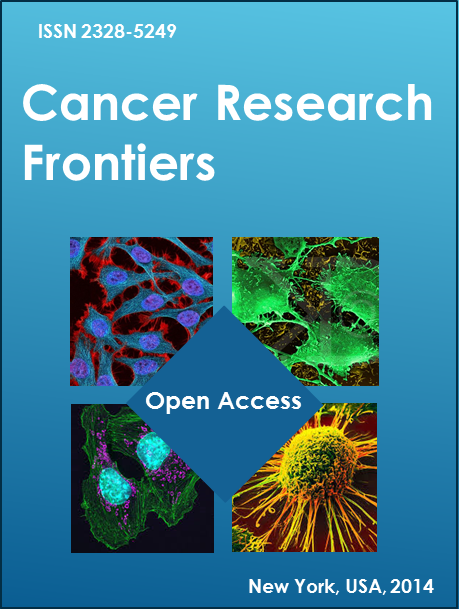Abstract _ Full Text (HTML) _ Full Text (PDF)
RESEARCH ARTICLE
Cancer Research Frontiers 2017; 3(1): 56-63. doi: 10.17980/2017.56
Association between leptin and leptin receptor gene polymorphisms and breast cancer risk in premenopausal and postmenopausal Mexican women
Luz Ma González Huerta1, Carmen I. Santos Cabrera1, Roberto Mociños Montes2, Héctor Urueta Cuellar1, Jaime Toral López 3, Sergio A. Cuevas Covarrubias1*
1Department of Medical Genetics, Hospital General de México/Facultad de Medicina UNAM, México City, México;
2Service of Oncology, Hospital General de México, México City, México;
3Department of Medical Genetics, Centro Medico Ecatepec, ISSEMYM. EdoMex, México.
*Corresponding author: Sergio Cuevas-Covarrubias PhD. Hospital General de México, Universidad Nacional Autónoma de México, Genética, Facultad de Medicina. Dr. Balmis 148, Col. Doctores, CP 06726, Cd. De México, México. Email:
Citation: Luz Ma González Huerta, et al. Association between leptin and leptin receptor gene polymorphisms and breast cancer risk in premenopausal and postmenopausal Mexican women. Cancer Research Frontiers 2017; 3(1): 56-63. doi: 10.17980/2017.56
Copyright: @ 2017 Luz Ma González Huerta, et al. This is an open-access article distributed under the terms of the Creative Commons Attribution License, which permits unrestricted use, distribution, and reproduction in any medium, provided the original author and source are credited.
Competing Interests: The authors declare no competing financial interests.
Received Sept 28, 2016; Revised Jan 10, 2017; Accepted Jan 20, 2017. Published May 15, 2017
Abstract
Purpose: This study aims to evaluate the association between leptin (-2548 G>A) and leptin receptor (p.K109R, p.Q223R, p.K656N) polymorphisms with breast cancer (BC) risk in premenopausal and postmenopausal Mexican women.
Material and methods: 274 women were included, 76 with BC in premenopause, 66 with BC in postmenopause, 108 without BC in premenopause, and 22 without BC in postmenopause. Four polymorphisms were genotyped by PCR, High Resolution Melting, and DNA direct sequencing. χ2, logistic regression analysis was performed with SPSS and XLSTAT software.
Results: There was statistically significant risk of BC in postmenopausal women with LEPR p.Q223R+p.R223R (OR: 8.4, 95% CI: 2.7-25.6, P <0.001), and in premenopausal women with LEP-2548G>A+ -2548A>A genotype (OR: 1.7, 95% CI: 1.0-3.0, P = 0.04).
Discussion and Conclusions: This is the first study from Mexico that includes four polymorphisms on LEP and LEPR genes. Our data indicate that both LEPR p.Q223R in postmenopausal women and LEP-2548G>A in premenopausal women have a strong association with BC, which suggests that these polymorphisms play a role in the development of BC in Mexican women. We detected coincidences and differences with respect to other populations. This highlights the importance of conducting genetic epidemiologic studies to identify the risk of gene polymorphisms and BC for each population.
Keywords: leptin, leptin receptor, breast cancer, premenopause, postmenopause








